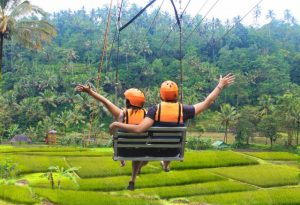Tourism and good health: Medical tourism
BY DR. PETER TARLOW, PRESIDENT OF TOURISM & MORE, INC.,
Tourism and health has taken on two new meanings. Health tourism can be broken down into two components, people who travel to a particular spot for medical reasons, such as cancer centers or for specific operations such a coronary bypass, and people who travel to a location for medicinal reasons such as rest and relaxation. Medicinal tourism caters not to the sick but to those who seek new levels of wellness. Examples of medicinal tourism are spa or centers that cater to non-essential cosmetic re-makes such a weight loss. Medical tourism of the hospital variety differs from medicinal tourism (the spa variety) in that it aims to serve those who are accompanying an ill person and often does not seek repeat business. Medicinal tourism on the other hand seeks repeat business and hopes that its clients will return on a regular basis.
Spa tourism has been around for thousands of years. In ancient times places such as northern Israel and Rome attracted visitors from the much of the known world. Across the millennia then spa tourism has provided visitors with non-invasive therapies, opportunities to improve physical fitness. In the modern world spas also provide their guests with weight-loss treatments, special cleansing diets and a variety of mineral and thermal skin treatments. Many spas also often massage and yoga classes as other ways to improve health and to de-stress.
Both of these separate phenomena are often classified as “medical tourism” and although their raisons d’être are very different, they also share many tourism similarities. Medical tourism also has the added advantage that it can provide essential services to the local population at the same time that it is helping the local economy. To help you consider if medical tourism is a good choice for your community consider some of the following ideas.
-Determine what health factors make your community unique. Saleable health factors can include exceptionally clean air, unique waters with minerals, quiet settings, or any other natural phenomenon that would provide the person with a form of health benefits that are unique to your community.
-Make sure that your medical personnel understand the importance of good bedside manner. In the world of medical tourism physicians, nurses, and therapists are more than medical professionals. They are also part of the tourism industry and their patients are also “clients”. That means that it is imperative to train medical tourism workers not only in their particular medical field, but also provide them with a clear understanding of customer service and the tourism product. How they treat their patients may well determine a patient’s willingness to return.
Merge your tourism offerings with the local ambiance. Medical tourism is about creating psychological and physical harmony. Make sure to offer a wide variety of options, but at the same time, be careful to honor the place in which your tourism is located and integrate local culture and foods into your medical tourism site.
Make your hospitals tourism friendly. Hospitals are often seen as places in which to get sick rather than to get well. Hospital tourism means integrating not only the patient with the local community but also the whole family. During the patient’s recovery phase, provide the patient’s family with day trips that stay connected to the hospital in case of emergency. Develop special brochures for out-of-towners who are visiting sick friends and relatives. Remember that these are people who are in your community due to a love one’s illness. They need excellent customer service, ways to relieve tension and still feel that they are close to loved ones.
Make sure that your medical tourism meets industry standards. Medical tourism is in an existential sense different from many other forms of tourism in that involves the health and well-being of a guest. Make sure to meet all standards, do not advertise what you cannot deliver and make sure that people understand the risks involved. The bottom line is that while foreseeability is essential in all forms of tourism it is especially important in the area of medical tourism.
Take the time to get your medical tourism right! Terms such as medical tourism, spa tourism and wellness tourism are often used so loosely that no one is sure what these terms mean. Be truthful in your advertizing; say what you offer and what you do not offer so that the customer is absolutely clear about the experience s/he is purchasing. Also be certain that resources, such as water, (as used in spas) are tested on a regular basis so as not to turn a medicinal tourism experience into an illness acquired experience.
If doing medical tourism; make sure that you create partner agencies. One of the problems in the area of medical tourism is what does a patient do after s/he has returned home and has a problem. Good medical tourism centers can provide 24 hour/7 day a week medical hot lines, but often a patient needs more than a phone. Make sure that medical records are sent home in the local language or in a language that the local doctor can read. Establish partner hospitals around the world and make sure that medical prescriptions can be filled in the customer’s country.
Deal with the insurance problems before not after. Many visitors in both medical and medicinal tourism may want to use a local insurance plan. Be sure to list in your literature payment structures and whose insurance your institutions can accept. There is nothing less pleasant than having a fight over money when it comes to health and these disputes often cause visitors to have a negative reaction to the host community and not just the health provider. Make sure that health providers understand that they are an essential part of the community’s economic health and what they do or fail to do reflects on the whole community. Source: tourismandmore.com















